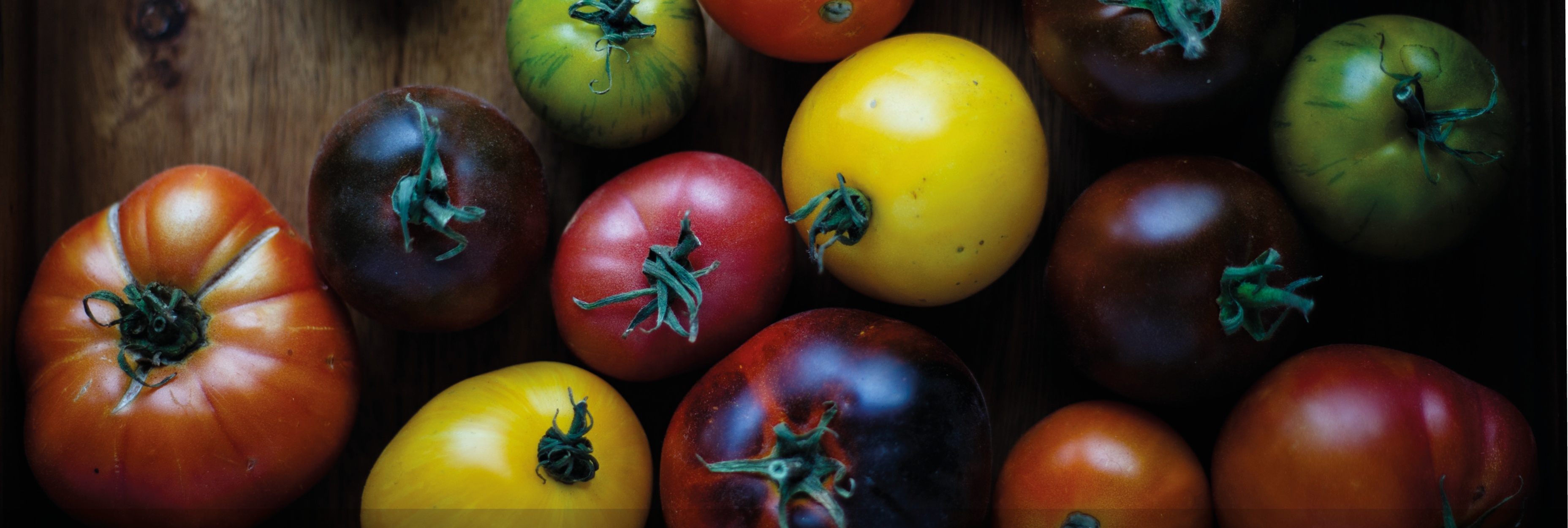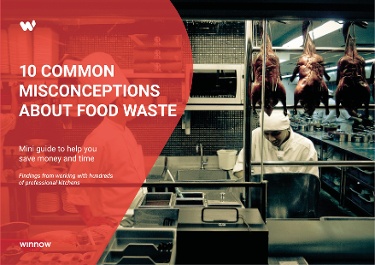Commercial kitchens depend on their supply chains to get them the ingredients they need in a timely and cost-effective way. However, unsustainable sourcing can lead to unsatisfied customers whilst having a negative impact on the environment, and on the community.
Sourcing sustainably can increase brands profiles as consumers demand for sustainable food has never been higher. A study by the Hartman Group reveals that dining habits are changing to include an interest in better food options. Diners open to sustainable, higher quality and healthy food compose 42% of consumers today.
Additionally, sourcing from transparent and fair growers can reduce environmental damage, and provide jobs to local communities. It can even improve the quality of dishes with organic and nutritious products.
Sourcing sustainable ingredients can have its challenges for a variety of reasons, such as an increase in cost or the necessity to build a new plan which can take time to develop. But, there are easy steps chefs and F&B directors can take to offer diners fresh, delicious and local food. Here is how professional kitchens can move from standard to sustainable sourcing.
- Start from the basics
When looking to start sourcing from sustainable products, it is crucial to choose the right suppliers. When meeting new growers, find out how much they are able to produce, where their produce is coming from, and how far it will have to travel. If there aren’t many local choices available, you may want to join with other businesses in the area to bulk buy from further sustainable businesses. It will help keep costs lower.
You might find that some ingredients, such as exotic fruit and spices, may have to be imported from a different region and country. It is not the most sustainable option, but it can be improved. Buying Fair Trade-certified products imported from poorer countries, for example, is a more ethical option as it benefits small and individual producers.
- Planning in advance
It is extremely important to plan your menus in advance in order to source the right amount of product avoiding last minutes orders, which usually comes with extra rates. Start thinking in the spring what the summer menu is going to look like. It is also important to keep in mind that nature doesn’t always work in predictable ways. Those delicious and sweet organic Fuji apples that you are counting on for dessert pies, might be delayed by a few days or even by a few weeks. It will depend on how the weather changes.
Flexibility is the key to have a good experience when planning a sustainable menu. Try swapping the apples for poached pears, and use it as an opportunity to elevate your brand profile and attract loyal customers. By telling your diners why you had to swap the apple pie dish, it will show them how much your kitchen cares about the environment.
- Work in partnership with suppliers
Connect with local growers, and take the time to visit their farms on an annual basis. It is a great opportunity to create a strong relationship with suppliers. If hotels, foodservices, and restaurants are using their buying power to be a force for good, suppliers should be doing the same. With a closer relationship, it will be easier to know if growers are not only acting responsibly towards the environment, but also towards their employees and the local community.
For the award-winning caterer group, Elior, building long term business partnerships with suppliers is an essential factor in reaching reliable performance in their services. All their suppliers undergo a process which is designed to ensure high standards of quality. All suppliers must adhere to Elior’s code of practice which includes having the British Retail Consortium and SALSA (Safe and Local Supplier Approval) accreditation.
For Compass Group UK & Ireland, the UK’s largest food and support service firm, sourcing sustainable ingredients is also a priority. Compass work in partnership with local suppliers to get the very best ingredients and give their chefs the right tools to do their job. This allows them to produce delicious meals and provide excellent service.
- Change menu according to the seasons
Buying fruits and vegetables that are in season mean that your guests will eat the most flavourful and nutritious food. In addition to that, it can result in great economic benefit.
When nature decides to cooperate, farmers can find themselves with a particularly productive harvest, and therefore more fruits and vegetables than they were expecting. If they don’t have sufficient storage space, they’ll be looking to sell this product quickly, which means lower prices for professional kitchens.
- Grow your own vegetable garden
Commercial kitchens can have delicious sustainable ingredients, reduce transportation cost to zero and dramatically reduce operating costs by growing their own fruits, vegetables and herbs. Urban farming can also bring greater impact in the community by contributing to the local economy, creating functioning ecological spaces.
It can even help solve the problem of food waste. Last year, Accor Hotels, one of the world's biggest hotel chains, announced that it would reduce food waste by 30% by 2020. In order to accomplish that, among other initiatives, the group announced it’s commitment to create vegetable gardens in most of its 3.900 hotels.
According to UNFAO, urban garden plots can be up to 15 times more productive than rural holdings. This is extremely beneficial especially to places that are highly dependent on imported food, such as the UAE.
Since the Dubai Municipality started its Grow Your Food campaign in 2015, the city has seen a farming revolution. Because of the initiative, large numbers of urban gardens have appeared across the city, that is internationally known for importing over 90% of its food. According to Eman Ali Al Bastaki, from the Dubai Municipality, the campaign has seen the number of participants increase this year. In addition to public and private schools, 15 companies and 12 government institutions also took part.
It’s undeniable that there are certain challenges associated with sourcing more sustainable ingredients for your kitchen. But once you have implemented the changes, it will be just as easy, and a lot more satisfying than ordering from regular suppliers.
Have you made the appropriate changes to start sourcing sustainable food? What challenges did you face and how did you overcome it? Share your experience with us in the comments below.
Photo credit: Vince Lee via Unsplash









Comment on my blog